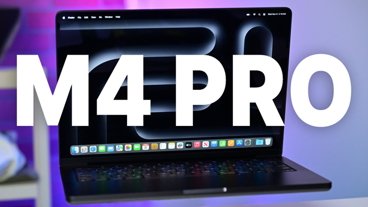Though Ireland is set to close its tax loopholes in January of next year, the changes won't be applied to Apple and others until 2020, resulting in a "relatively neutral" outcome for AAPL shareholders, investment firm Barclays said this week.
Analyst Ben A. Reitzes characterized the upcoming changes to close the so-called "Double Irish" tax loophole as a "minor issue" for Apple. With the effect coming in 2020, he said the temporary relief balances against slightly lower long-term earnings power.
Last year Apple paid $1.1 billion on foreign taxes on $30.5 billion in overseas pretax earnings. That resulted in a tax rate of about 4 percent, thanks to tax loophole laws in Ireland.
The Irish statutory tax rate, however, is 12.5 percent. If that rate were to be applied to Apple's foreign pretax earnings, Reitzes estimates that the company's earnings would come down by about 7 percent.
If Apple were to pay the full Irish tax rate of 12.5 percent, Ben A. Reitzes of Barclays estimates it would bring earnings down by 7 percent.
With the "Double Irish" issue apparently addressed, Reitzes seemed more concerned as to whether the European Union would decide to impose a fine on Apple and others for its tax strategies. The legislative arm of the EU announced last month that it believes Apple received special treatment from Ireland in the form of tax agreements that could be viewed as illegal.
Ireland's finance minister announced this week that it would end the "Double Irish" accounting scheme starting in 2015 for new companies. Those currently leveraging the strategy — including Apple, Google and others — will have until 2020 to find another country with favorable tax provisions.
The "Double Irish" provision allows companies with operations in Ireland to route profits to another Irish subsidiary, which has tax residency in a tax-free nation, such as the Cayman Islands.
In Ireland, only companies that are managed and controlled in Ireland are considered tax residents. Apple Operations International is incorporated in Ireland, but is not managed and controlled there.
After the EU investigation into Apple was announced earlier this year, the company responded this week and denied dodging EU tax laws or receiving special treatment from Irish authorities. The iPhone maker said it "pays every euro of every tax" that it owes.
Barclays has maintained its "overweight" rating for AAPL stock with a price target of $116.
"Supported by margin upside, large stock repurchases and a growing dividend, we believe Apple's shares can outperform in a very tough tape," Reitzes wrote.
 Neil Hughes
Neil Hughes







-m.jpg)






 Christine McKee
Christine McKee
 Andrew Orr
Andrew Orr
 William Gallagher
William Gallagher
 Malcolm Owen
Malcolm Owen

 Andrew O'Hara
Andrew O'Hara

 Charles Martin
Charles Martin






22 Comments
I knew that was coming, it more of a change for any new company wishing to set up business not Apple, they being grandfather for a period of time.
Expect massive job losses to be Ireland's newest growth industry.
Barclays bough some AAPL I see.
Barclays bough some AAPL I see.
For as long as I have been buying Apple products (9 years), the financing option for Apple hardware has been a Barclays credit card. Unless this is a different Barclays with the same name.
[quote name="Ireland" url="/t/182811/changes-to-irish-tax-law-a-minor-issue-for-apple-barclays-says#post_2619723"]Barclays bough some AAPL I see. [/quote] What is your tax on the tax haven in your country?